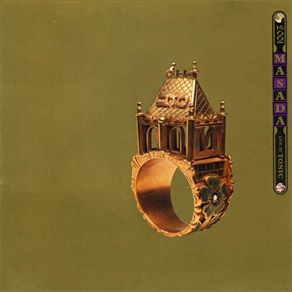Masada - Live At Tonic 2001
Download links and information about Masada - Live At Tonic 2001 by John Zorn. This album was released in 2001 and it belongs to Jazz, Avant Garde Jazz, Free Jazz, Rock, Hard Rock, Metal, Avant Garde Metal, World Music, Classical, Folk genres. It contains 18 tracks with total duration of 02:20:31 minutes.

|
|
|---|---|
| Artist: | John Zorn |
| Release date: | 2001 |
| Genre: | Jazz, Avant Garde Jazz, Free Jazz, Rock, Hard Rock, Metal, Avant Garde Metal, World Music, Classical, Folk |
| Tracks: | 18 |
| Duration: | 02:20:31 |
| Buy it NOW at: | |
| Buy on Amazon $18.99 | |
| Buy on iTunes $19.99 | |
Tracks
[Edit]| No. | Title | Length |
|---|---|---|
| 1. | Intro | 1:23 |
| 2. | Karaim | 17:50 |
| 3. | Ner Tamid | 5:07 |
| 4. | Acharei Mot | 11:07 |
| 5. | Kisofim | 7:12 |
| 6. | Jachin | 6:30 |
| 7. | Malkhut | 4:52 |
| 8. | Nashim | 6:58 |
| 9. | Intro | 0:30 |
| 10. | Lilin | 14:43 |
| 11. | Khebar | 5:59 |
| 12. | Galshan | 5:35 |
| 13. | Malkhut | 4:49 |
| 14. | Shevet | 8:08 |
| 15. | Shamor | 7:40 |
| 16. | Acharei Mot | 10:27 |
| 17. | Kisofim | 8:35 |
| 18. | Shechem | 13:06 |
Details
[Edit]It is almost impossible to review, let alone do justice, to a recording like this one. Masada has been together long enough now that the quartet members have reached the point of communicating by instinct on the bandstand. The previous live recordings they've issued have offered a glimpse into the growth and development of a band (already honed razor-sharp from its ten studio volumes) that has made the idea of studio records obsolete for itself. Live at Tonic is perhaps the most revealing and astonishing record yet by Masada, because it was recorded before a very discriminating audience of enthusiasts not only in the band's hometown, but also in its home club. Live at Tonic is two complete sets, over two hours in length, in a typically gorgeous double-CD package. What's more, there is only one selection repeated in the two programs. Masada's music has long since transcended the group's ambitious beginnings. Zorn has moved Masada into a space where the compositions he writes for the group become jump-off points not only into a singular kind of group interplay, but into a new tonal space altogether. Using Hebrew and Yiddish folk influences to craft root melodies, the harmonies created by the interaction of the group's front line of Zorn on alto and Dave Douglas on trumpet are striated versions of those from antiquity framed by a language that stands in opposition to the "accepted" language, syntax, and dialectics of jazz in an era that would rather look back to some false notion of an innocent past.
Masada looks through history as a referent of carnage, cultural genocide, and miscegenation, but one that has inspired resistance, creativity, and the necessity of spiritual and community values as a response, from the long "Karaim," with its knotty double- and triple-line melodies (the third added by bassist Greg Cohen), to the gorgeously arrayed and furiously articulated "Archarei Mot," with its rhythmic invention (courtesy of drummer Joey Baron and Cohen) that makes it an almost Miles-like funk squealer with Zorn and Douglas using Ornette Coleman's clipped melodic/rainbow harmonic sense to further the notions of propulsive rhythmic architecture, to the lush woven counterpoint by the front line of "Nashim," the encore. Here — with its furious engagement of three interspersed tonal figures in the foreground as a means for breaking the folk narration down into something more flexible, liquid, and dark — is the invention of music as a projected action against separation, rarifying structure, and mere re-articulation of past jazz positions.
The second set is even more insistent, more abstract; it's deeper in terms of cellular communication. The intervallic explorations of Zorn and Douglas on "Kehbar" and "Gelshan" are extraordinary; they seem to come from cross-purposes to one another and then exchange positions in the interim. The cross-handed drumming of Baron on "Shamor" and on the encore, "Shechem," offers the band an entirely new spatial dimension to explore, led there by the timbral sparks of Cohen and rooted to his in-the-moment bass playing. He's never lost, no matter how woolly the maelstrom becomes. Ultimately, though, Masada's two greatest contributions lie in the band members' ability to improvise along a patter of interstitial calls, responses, and melodic frameworks that they've internalized, and in their ability to perform a series of compositions that are unique to them. There is no other band out there that could cover them. And here's the rub: It's not because Zorn necessarily wants it that way, it's because no other band is thinking along these same lines at the moment, with the possible exception of Ellery Eskelin's trio with Andrea Parkins and Jim Black.